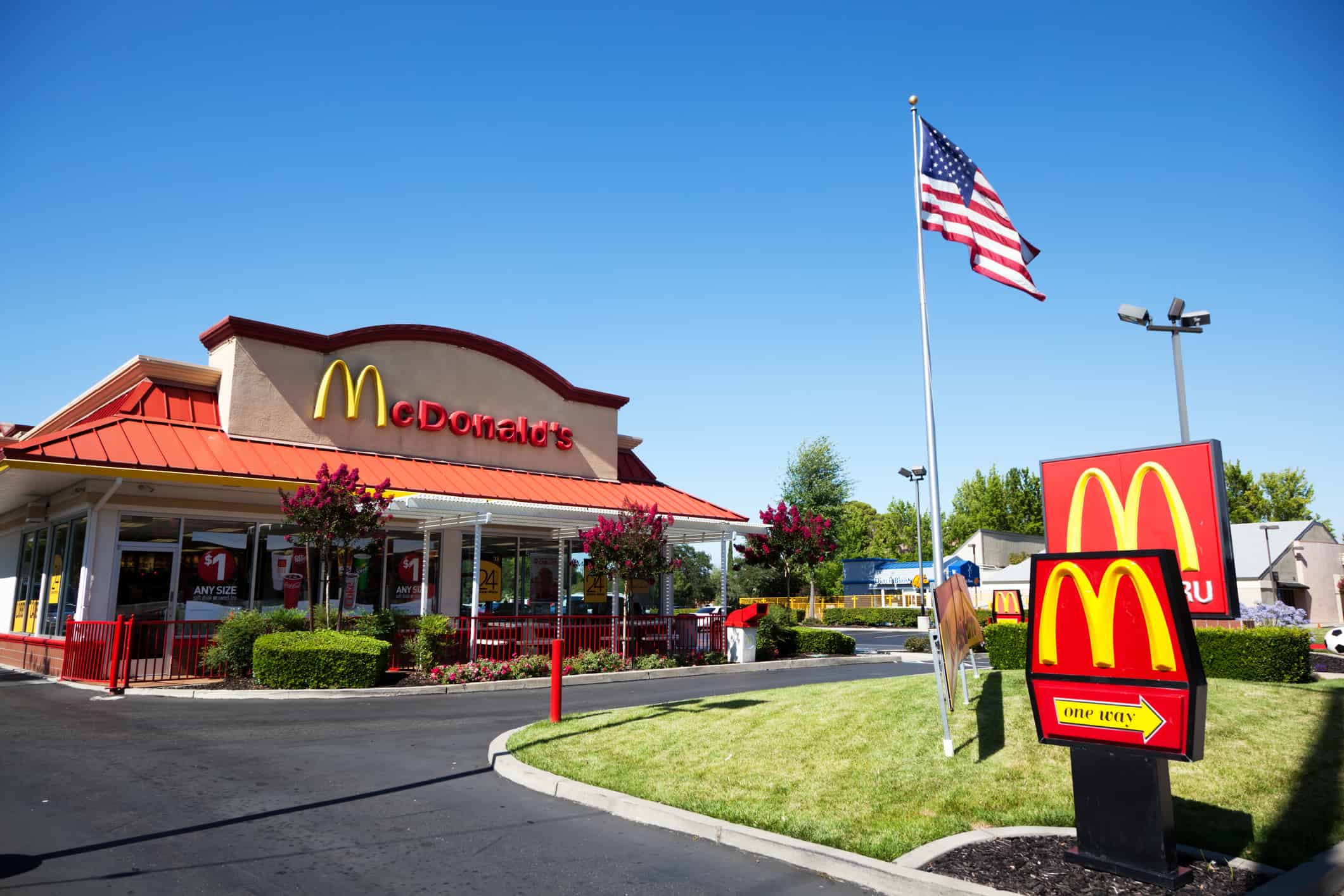
iStock.com/slobo
Can McDonald’s Solve Its Price Perception Problem?
In an open letter to “our U.S. fans,” Joe Erlinger, president of McDonald’s USA, said the fast-food chain remains “laser-focused on value and affordability” while refuting charges that its menu prices have skyrocketed over the inflationary period.
“Recently, we have seen viral social posts and poorly sourced reports that McDonald’s has raised prices significantly beyond inflationary rates,” Erlinger wrote. “This is inaccurate. And for a brand that proudly serves nearly 90% of the U.S. population every year, we feel a responsibility to make sure the real facts are available.”
He particularly took issue with a Twitter post from last July regarding a Big Mac meal priced at $18 that went viral and earned extensive media coverage.
Erlinger explained that franchises, which operate more than 95% of McDonald’s U.S. restaurants, set menu prices for their establishments, and the $18 Big Mac meal was offered at only one location in Connecticut out of more than 13,700 U.S. locations. He added, “More worrying, though, is when people believe that this is the rule and not the exception, or when folks start to suggest that the prices of a Big Mac have risen 100% since 2019.”
He said the average cost of a Big Mac in the U.S. is now $5.29 against $4.39 in 2019, an increase of 21%.
The “100%” references a study from FinanceBuzz that came out in April — and also met major media coverage — that found McDonald’s prices on a group of popular menu items had increased 100% on average since 2014, triple the inflation rate over the period. McDonald’s price hikes were found to be higher than all the other major chains in the QSR (quick service restaurant) space.
Erlinger said that overall menu price increases at McDonald’s reflect “historic rises in supply chain costs, wages and other inflationary pressures” and “remain well within the range of other quick service restaurants.” Franchises, he added, are working “hard to minimize the impact of price increases on our fans,” with many menu items having risen less than the rate of inflation and more than 90% of U.S. franchisees offering meal bundles for $4 or less.
A “Myths vs. Facts” chart presented at the bottom of the letter addresses other specific claims in media reports, including the pricing of particular menu items (the cost of a 10-piece nugget meal has increased 28%, not 95.5%, since 2019) and more general assertions (the average McDonald’s item has seen a price increase of 40% over the past five years, not double the national inflation rate).
Fast-food prices have increased by 4.8% over the last year and 47% since 2014, while general inflation has risen 24%, according to the Bureau of Labor Statistics.
The letter comes amid signs that at least some Americans are reducing their fast-food consumption because of rising costs.
A January poll by Revenue Management Solutions found that roughly a quarter of consumers who earn less than $50,000 a year were cutting back on fast food because of concerns about the price. An April LendingTree survey also found that nearly 80% of U.S. consumers now consider fast food a “luxury” because of rising prices.
McDonald’s in recent months has been promising to bring back investments in value meals, promotions, and freebies to revive traffic, and last week it announced a new $5 value meal. The offer features a bundle of four items: a McDouble or McChicken sandwich, small fries, a small soft drink, and a four-piece Chicken McNuggets for $5, starting June 25 for a limited time, as first reported by the Wall Street Journal.
Erlinger concluded in his statement, “I fully expect the prices at your local McDonald’s to be an area of conversation and focus in the coming months. As it does, I hope you’ll see the programs we’re launching nationally and locally as meaningful to you. At the same time, I hope it’s helpful to see some of the common myths that I’ve encountered, and the facts that go along with them.”
Burger King, Wendy’s, KFC, Taco Bell, and others in the fast-food space have been promoting value menus or deals for the first time largely since before the pandemic, causing some investor concerns that a price war will only reduce the QSR industry’s margins without significantly boosting traffic.
Referencing McDonald’s deal, Cowen analyst Andrew Charles wrote in a note, according to CNN, “We believe this represents a tipping point in the [quick service restaurant] industry’s intensified push on value that we worry will extend beyond the promotion’s scheduled run as competitors look to protect share.”
Discussion Questions
Is the return of value meals the best path for McDonald’s to win back inflation-weary customers?
Should McDonald’s and other fast-food chains be doing more to explain their price increases and dispel “myths” about their pricing actions?
What advice would you have about optimally employing discounts to revive traffic?
